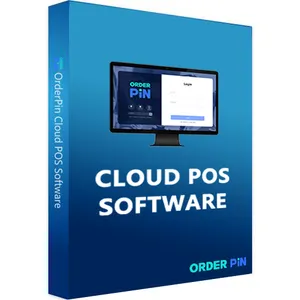Introduction to Accounting Applications
In today’s fast-paced business environment, accounting applications are crucial for effective financial management. These software solutions simplify and automate various accounting tasks, helping businesses maintain accurate records, streamline workflows, and ensure compliance with regulations. Designed for different types of users, from freelancers to large corporations, accounting applications play a pivotal role in enhancing productivity and financial transparency.
Types of Accounting Applications
There are several types of accounting applications available on the market, each catering to specific needs and industries. Here are some common categories:
- Financial Accounting Software: Focuses on recording financial transactions and generating statements like balance sheets and profit & loss statements.
- Cost Accounting Software: Aids businesses in determining the costs of products, projects, or services, enhancing budgeting and expenditure analysis.
- Payroll Accounting Applications: Specialize in managing employee payroll, including salary calculations, tax deductions, and compliance with labor laws.
- Tax Accounting Software: Simplifies tax filing processes, helping users ensure accuracy and compliance with tax regulations.
- Cloud-based Accounting Solutions: Enable users to access their accounting data from anywhere, promoting collaboration and real-time updates.
Function and Features of Accounting Applications
The functionality of accounting applications greatly enhances the efficiency of financial operations. Some key features to look for include:
- Automated Bookkeeping: Reduces manual entry by automatically categorizing and recording transactions.
- Invoicing and Payments: Facilitates seamless generation of invoices and collection of payments, improving cash flow management.
- Financial Reporting: Assists in generating real-time reports for better decision-making, including cash flow forecasts and expense tracking.
- Integration Capabilities: Allows integration with other business tools (like CRM and inventory management systems) for a more cohesive workflow.
- User-friendly Interface: An intuitive design ensures that even non-accountants can navigate the software with ease.
Applications of Accounting Applications
The versatility of accounting applications makes them applicable across various sectors. Here are a few scenarios where these tools can be beneficial:
- Small Businesses: Streamlining operations, managing cash flows, and simplifying compliance without needing a full-time accountant.
- Freelancers: Tracking income and expenses, generating detailed invoices, and managing tax obligations independently.
- Non-profit Organizations: Ensuring transparency and accountability with rigorous financial tracking and reporting.
- Corporations: Handling complex financial data, multi-department collaboration, and regulatory compliance more efficiently.
- Start-ups: Establishing a robust financial foundation from the get-go with essential accounting functions that can scale as the business grows.
Conclusion
Choosing the right accounting applications can revolutionize the way a business handles its finances. By exploring the various types and understanding their functionalities and applications, businesses can select a solution that best meets their unique requirements. Investing in the right software not only saves time and reduces errors but also provides invaluable insights that drive strategic decision-making. With the landscape of accounting applications continuously evolving, staying informed about new features and improvements is key to maintaining a competitive edge.












































